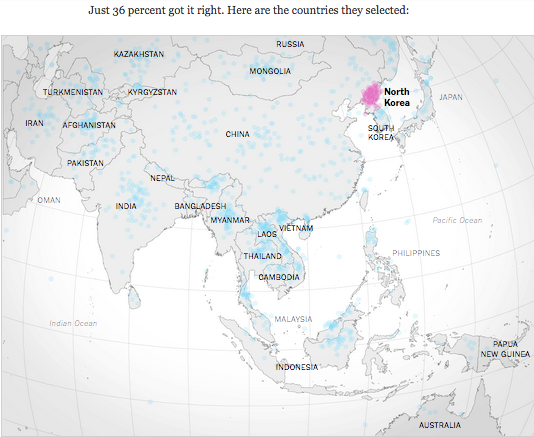When asked which policies the United States should pursue regarding North Korea, Americans diverged on their views depending in part on whether they knew where it was.
North Korea launched an intermediate-range ballistic missile on Sunday, and the White House called for “all nations” to put in stronger sanctions.
An experiment led by Kyle Dropp of Morning Consult from April 27-29, conducted at the request of The New York Times, shows that respondents who could correctly identify North Korea tended to view diplomatic and nonmilitary strategies more favorably than those who could not. These strategies included imposing further economic sanctions, increasing pressure on China to influence North Korea and conducting cyberattacks against military targets in North Korea.
They also viewed direct military engagement – in particular, sending ground troops – much less favorably than those who failed to locate North Korea.
The largest difference between the groups was the simplest: Those who could find North Korea were much more likely to disagree with the proposition that the United States should do nothing about North Korea.




